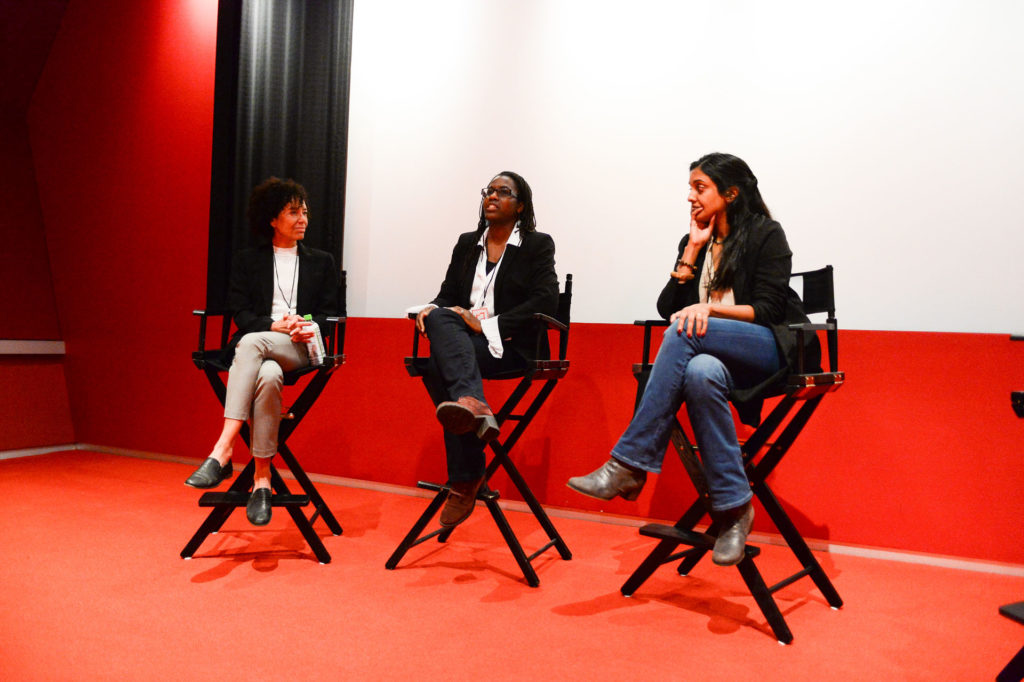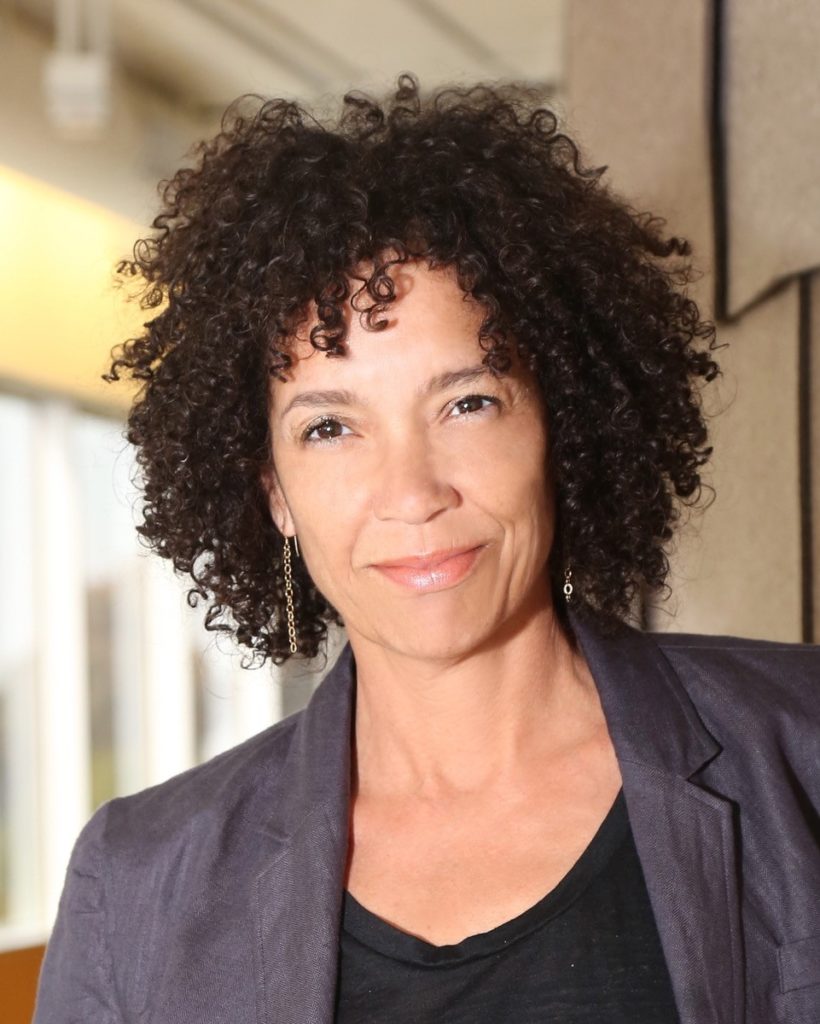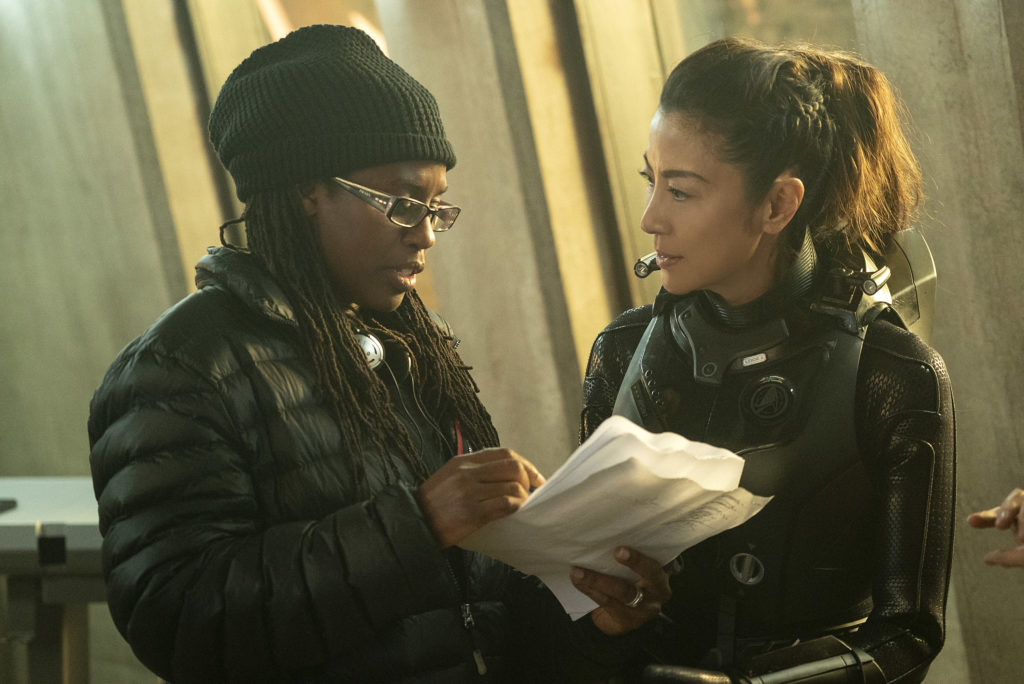Expand the Story, Change the World

The growing sense of urgency around gender equity in media required an industry-wide response. To meet this challenge, in 2015, Women In Film and Sundance Institute brought together over 50 Hollywood leaders and influencers, including studio heads, agency partners, senior network executives, and talent and guild representatives to figure out a way to make the equity and inclusion movement bigger. The three-day summit immersed the attendees in anti-bias training, statistics on the industry and discussion of how to create change.

Film Producer Stephanie Allain was at that first summit and became one of the first ReFrame Ambassadors, a natural extension of her 30 years of working for diversity, equity and inclusion in the film and television industry. “At that first Summit we started to educate ourselves,” says Stephanie. “We met in groups and discussed our own situations and ways we thought we could ameliorate what we clearly recognized was bias in pay parity, work parity and glass ceiling, for women, and especially women of color. We declared that we were here as ReFrame with a mission to change the story, to reframe the lens, to shine the light on and to disrupt what we considered inequality.”
From that beginning, the Ambassadors went on to meet and share the facts with studio heads, create the ReFrame stamp that identifies movies and TV shows that meet ReFrame’s criteria for being an equity friendly production, and define a 30-step process for how to address diversity and inclusion from film development to distribution.
Stephanie shares an example of how ReFrame has impacted just one step in the production process. “For instance, typically line producers are men. They are men because there is a bias that men are better with money. And in Hollywood, you tend to work with the same people–you know them, you like them, so it’s hard for someone new to break in. If you’ve been hiring men to look after the money for the last 20 years, what are you going to change? What we ask is that if you hire a man to do a budget for you for a movie, spend $5000 to hire a woman to do the budget too. Even if you know you’re going to hire that man, spend the money to hire a woman to do the same budget. See what the difference is. I guarantee most of the time you will find savings. Because the woman will look at everything more closely. She’ll come up with new ideas. Then you’ll say, hey, this is pretty good. I already told this guy I was going to hire him, but maybe next time I’ll hire her. It’s like a psychological click in your brain that opens you up to things you haven’t thought of. And this is just one of the steps along this continuum that we put together.”
A recent study shows that the TV, film and entertainment industry is the least diverse industry, yet it controls the culture that is created and that children see. Stephanie explains, “If you see it, you can be it. If you don’t see it, how do you know you can be it? How do you aspire? How do you say ‘mom I want to take a math class, what if I could be an astronaut?’. That’s the power of representation on screen that’s so obvious yet under-realized. When probably 95% of the content is coming from a straight, white, and male point-of-view, that’s the world that that’s being created for people, and they see there’s no place for them. But if you are showing many different avenues coming from different visions, you can create sparks in young brains. They think, ‘Oh, I can do that, somebody has done it, so I know I can do it too.’”
Progress is being made. The number of films qualifying for the ReFrame stamp is increasing every year – from 12 of the Top 100 grossing films in 2017 to 29 in 2020, to holding steady at 28 films in 2021. The ReFrame stamp for television series was expanded from the Top 100 to the Top 200 series of 2020-21, and for the first time more than 51% of the most popular series earned the ReFrame Stamp. This is proof that more productions are being inclusive in hiring. Ultimately ReFrame would like to see 100% of projects qualify for the stamp, reflecting a standard of gender-balanced hiring. When women are empowered to tell their stories and given the ability to share their work and connect with audiences, they help shift the power structures and cultivate a more humanist future. Inclusive representation in media can transform the world.
Stories that allow people to see themselves reflected on screen are incredibly powerful, and research shows that including more perspectives behind the camera leads to better representation in front of the camera.
Lisa Nishimura, Vice President, Documentary and Independent Films, Netflix









Other highlights of the 200 shows analyzed included 62 women in the role of showrunner (13 of those being women of color) and 102 shows with a woman in a top-billed acting role (31 being women of color).
Chris Gardner, Hollywood Reporter